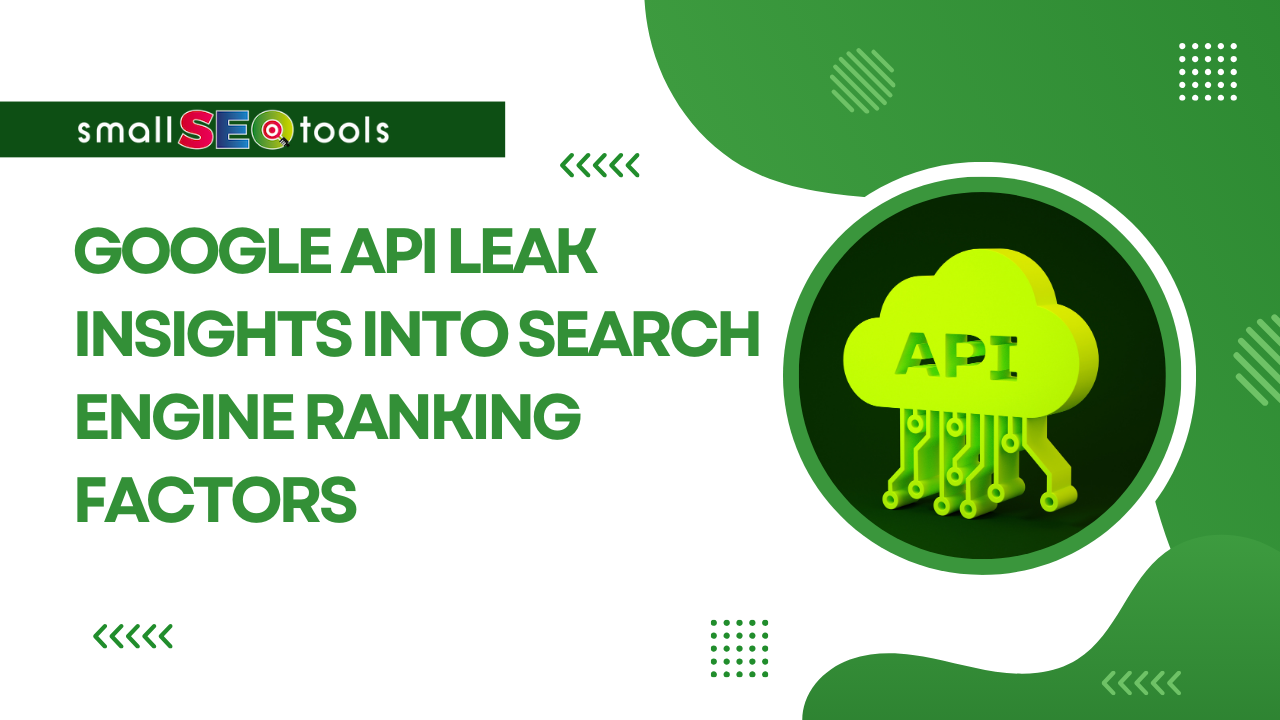Google API Leak: Insights into Search Engine Ranking Factors
Discovering the inner workings of Google’s search algorithms is a constant pursuit for SEO professionals. Recently, an extraordinary leak of over 2,500 pages of API documentation from Google's Search division has provided unprecedented insights into the company's ranking factors. This article delves into these revelations, revealing key takeaways about Google's search operations. If you're seeking expert assistance to navigate these complex SEO strategies, consider partnering with a reputable SEO agency.

Background
On May 5th, an anonymous source contacted me with a massive leak of API documentation, confirmed as authentic by ex-Google employees. This documentation challenges Google's public statements regarding the use of click-centric user signals, subdomain rankings, sandboxing of new websites, and consideration of a domain's age.
Key Findings
1. NavBoost and User Click Data
NavBoost, a system referenced in Google VP Pandu Nayak’s DOJ testimony, utilizes click data to improve search quality. The leaked documents reveal Google’s use of various click metrics, including "goodClicks," "badClicks," "long clicks," and "short clicks." This contradicts Google's public denial of using click-based user signals in rankings.
2. Chrome Browser Clickstreams
Google allegedly gathers full clickstream data via the Chrome browser, launched in 2008 to enhance search results quality. This data helps determine the most visited URLs on a site, influencing features like Sitelinks.
3. Whitelists for Sensitive Topics
The documents indicate Google employs whitelists for certain topics, including travel, Covid-19, and political information. This ensures authoritative sources appear in search results during sensitive events, such as elections or the Covid-19 pandemic.
4. Quality Rater Feedback
Google’s quality rating platform, EWOK, provides data that influences search rankings. While the extent of this influence is unclear, it highlights the importance of human evaluations in Google's search systems.
5. Link Quality Tiers
Google uses click data to categorize link quality into three tiers: low, medium, and high. Links from high-quality tiers pass ranking signals, while those from low-quality tiers are ignored. This finding underscores the significance of user engagement in link valuation.
Implications for SEO
Brand Importance
The leak reaffirms that Google prioritizes well-recognized brands. Building a notable, popular brand outside of Google search is crucial for improving organic rankings.
E-E-A-T Factors
Experience, expertise, authoritativeness, and trustworthiness (E-E-A-T) might not be as directly influential as previously thought. The leak suggests these factors are correlated with, but not necessarily part of, Google’s ranking systems.
User Intent and Navigation Patterns
Google's algorithms heavily weigh user intent and navigation patterns. Creating demand for your site among target audiences can enhance rankings, potentially bypassing traditional SEO signals like links and optimized content.
Classic Ranking Factors
While PageRank, anchor text, and text-matching are still relevant, their importance has diminished. Page titles, however, remain a significant factor in search rankings.
Challenges for SMBs and New Publishers
Small and medium businesses (SMBs) and new publishers face challenges in competing with established brands. SEO efforts are likely to show poor returns until credibility, navigational demand, and a strong reputation are established.
Conclusion
This unprecedented leak of Google’s API documentation provides valuable insights into the company’s search ranking factors. While it doesn’t offer definitive proof of all claims, it strongly suggests that user engagement, brand recognition, and clickstream data play critical roles in Google’s search algorithms. SEO professionals should adapt their strategies to focus on building strong brands, understanding user intent, and fostering engagement to succeed in the ever-evolving landscape of search marketing.
leave a comment
Please post your comments here.SEARCH
-
Popular SEO Tools
- Paraphrasing Tool
- Plagiarism Checker
- Article Spinner / Rewriter
- Keyword Position Checker
- Grammar Check
- Domain Authority Checker
- Pagespeed Insights Checker
- Reverse Image Search
- Page Authority checker
- Backlink Checker
- Alexa Rank Checker
- Backlink Maker
- Domain Age Checker
- Website Ping Tool
- Website Seo Score Checker
- Keyword Density Checker
- Website Page Size Checker
- Word Count Checker
- Mozrank Checker

 ™
™